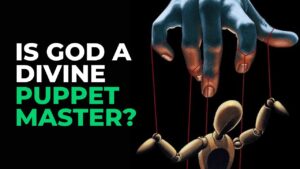This time of year, every year, the same debate pops up: Is Christmas a pagan holiday? Some claim it’s a thinly veiled rehash of ancient festivals like Saturnalia and Yule, while others defend its purely Christian origins. But the truth, as with most things in history, is a bit more nuanced.
Early Christian Origins:
While some pagan traditions undeniably influenced Christmas customs (but not beliefs), it’s important to remember that the holiday itself arose within the early Christian church. Some early Christians believed that Mary conceived on March 25. The earliest dating of this was by Sextus Julius Africanus around 160-240AD. Nine months after March 25 is December 25, so that’s most likely how the tradition was started.
The exact date of Christ’s birth remains unknown, but by the 4th century, December 25th had become widely accepted as the day to celebrate his nativity. This coincided with the Roman festival of Sol Invictus (“Unconquerable Sun”), but there’s no evidence that Christians intentionally adopted the date. In fact, in contrast to what most TikTokers or YouTubers claim, it is highly plausible that Sol Invictus copied Christianity and not the other way round. According to Brittanica.com, Sol Invictus was introduced to Rome in around 220AD at the earliest, at least 60 years AFTER early Christians deemed December 25th to be the birth of Jesus.
Read the Britannica article here: https://www.britannica.com/topic/Sol-Invictus
Evolution of Traditions:
As Christianity spread, some pagan winter solstice traditions were repurposed with a Christian perspective. For example, since Holly is an evergreen shrub, it symbolizes the eternal life of God. The prickly leaves symbolize the crown of thorns that Jesus was made to mockingly wear and the berries symbolize his blood that was shed. Mistletoe is also an evergreen plant and so too symbolizes the eternal life of God.
The origin of Christmas carols is interesting. Originally, pagan songs were sung at the winter solstice festival accompanied by dancing. The word carol comes from the old French word carole, meaning a popular dance with singing.
It is clear that Holly, Mistletoe and Carols were taken from pagan winter solstice celebrations, but they were repurposed to celebrate the light of the world and the eternal life Jesus offers. They might have pagan origins, but in no way do they have pagan meanings: They are Christ honoring.
Transformation, Not Appropriation:
The key takeaway is that Christmas isn’t simply a pagan holiday with a Christian veneer. It’s a celebration that has organically evolved over centuries, incorporating elements from various cultures while remaining rooted in the core Christian belief of Christ’s birth. Think of it as a beautiful tapestry woven from diverse threads, each contributing to the richness of the overall picture.
Focus on the Meaning:
Instead of getting caught up in the debate about origins, let’s focus on the true meaning of Christmas: the celebration of love, hope, and the birth of Jesus Christ. This message of peace and goodwill transcends cultural and historical boundaries, making Christmas a truly universal holiday.
So, the next time someone tells you Christmas is pagan, remember:
- The holiday originated within the Christian church.
- Pagan influences exist, but they’ve been reinterpreted in a Christian context.
- Christmas celebrates a universal message of love, hope, and joy.
Let’s embrace the rich tapestry of Christmas traditions, while keeping the focus on the true spirit of the season.
Merry Christmas!
I hope this blog entry provides a helpful perspective on the origins and meaning of Christmas. Feel free to share your thoughts and experiences in the comments below!



